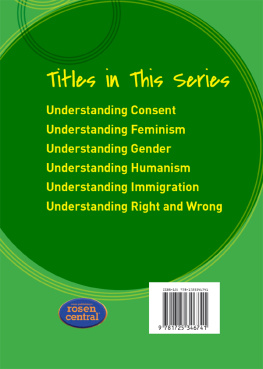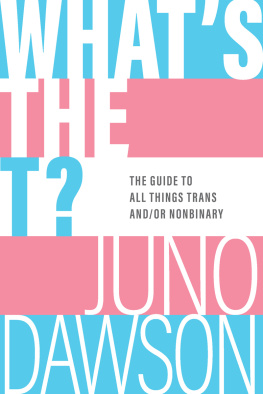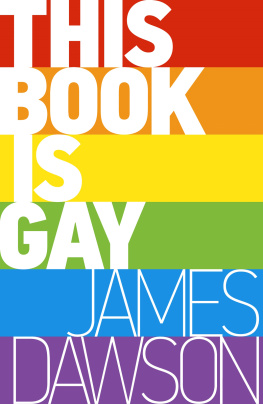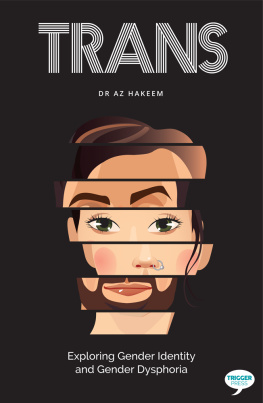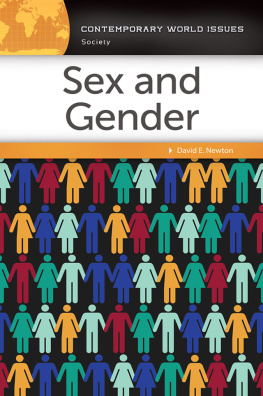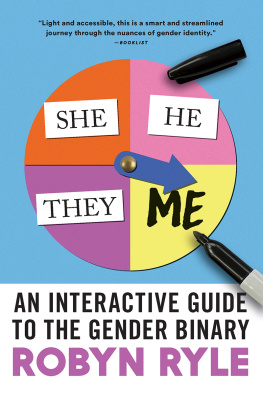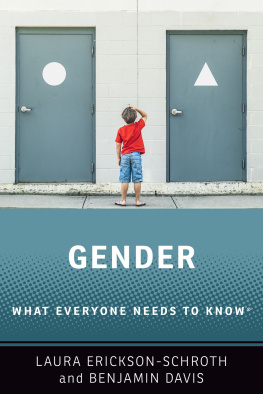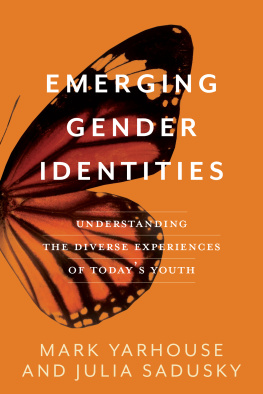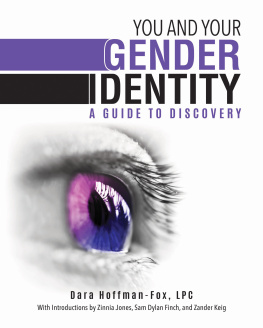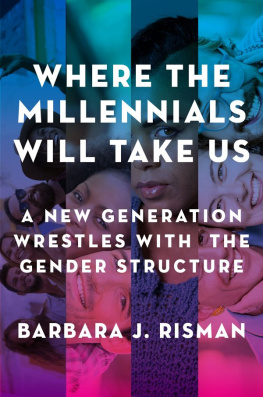
This edition published in 2020 by:
The Rosen Publishing Group, Inc.
29 East 21st Street
New York, NY 10010
First Edition
All rights reserved. No part of this book may be reproduced in any form without permission in writing from the publisher, except by a reviewer.
Cataloging-in-Publication Data
Names: Dawson, Juno.
Title: Understanding gender / Juno Dawson.
Description: New York: Rosen Central, 2020. | Series: Social justice handbook | Includes glossary and index. Identifiers: ISBN 9781725346741 (pbk.) | ISBN 9781725346758 (library bound) Subjects: LCSH: Gender identityJuvenile literature. | Gender nonconformityJuvenile literature. | Transgender peopleJuvenile literature. Classification: LCC HQ1075.D39 2019 | DDC 305.3dc23
Manufactured in the United States of America
Copyright 2020 Wayland, a division of Hachette Childrens Group
Editor: Sarah Silver
Designer: Rocket Design (East Anglia) Ltd
Picture acknowledgements: Cover photo: Adam Hester / iStock / Getty Images Plus. Cover design element: CS Stock / Shutterstock. John Arehart/Shutterstock: t.
Contents
Introducing Gender
When couples are expecting a baby, the first question people often ask them is are you having a boy or a girl? Easy enough to answer, right? After all, the world is divided into two types of human: males and females. It is thought that 49.6% of the worlds population is female and 50.4% is male. So far, so good. But what if it isnt quite that straightforward? A persons sex and their gender are very different things, and thats where this identity business can get complicated.
Why do we need this book?
Youve probably heard words like gender, sex, man, woman, boy, girl, lady, or gentleman and not really thought too much about what they mean. But they are important. This is because both your sex and your gender are having an impact on your life and your future, even if you arent particularly aware of it.
Gender is how you feel, and this feeling may not necessarily be the same as your sex. Your gender will influence how other people see you. People might make entirely false assumptions about you based on nothing more than whether youre a boy or a girl. For some people, being the gender they are given at birth makes them happy, for others it makes them quite sad.
In society, depending on where you are in the world, your gender might mean you have very different options, choices, and prospects. It is important we discuss something that affects peoples lives as much as gender does.
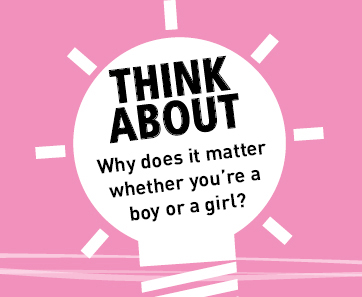
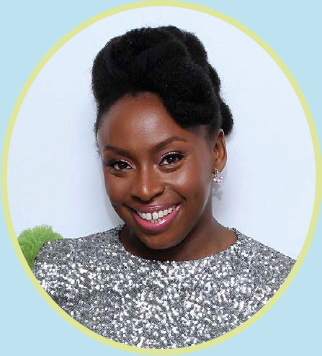
The problem with gender is that it prescribes how we should be rather than recognizing how we are. Now imagine how much happier we would be, how much freer to be our true individual selves if we didnt have the weight of gender expectations.
CHIMAMANDA NGOZI ADICHIE, AUTHOR
How this book works
By the end of this book, youll have learned several things:
The difference between sex and gender
What it means to be transgender
The difference between sex and sexuality
What the term genderfluid means
What sexism and feminism are
Why we need better equality.
If you can check off everything on that list, Ive done my job!
Youll also hear from supercool, clever people (like the ones pictured here, and more!) who all have something to say about their personal gender philosophies.
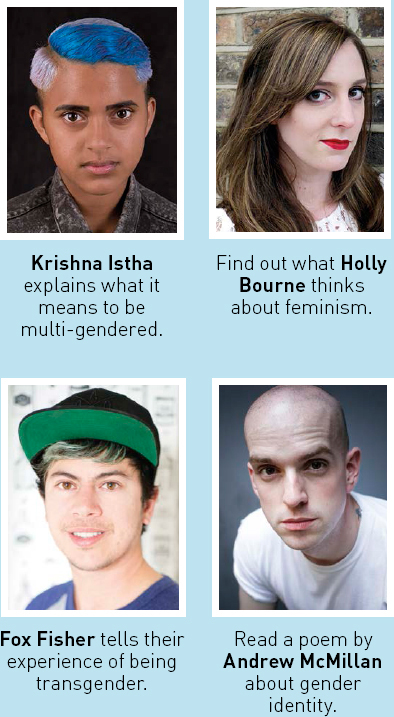
What Is Sex?
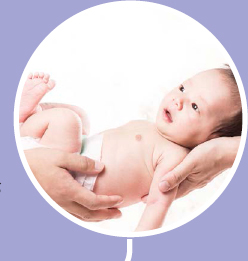
When you were born, its highly likely a doctor or a midwife proudly announced, Congratulations! You have a beautiful baby ________!
This proclamation was almost certainly based on what they observed between your legs. This is your sex and not necessarily your gender more on that later.
Sex
Sex is based on five key features of your biology:
1. External genitals This is the part the doctor or midwife could see. Females have a clitoris, vulva, and labia, while males have a penis and scrotum.
2. Internal genitals In order to reproduce (make babies), males and females have different anatomy inside their abdomen. Females have a vagina, uterus, and fallopian tubes while males have a prostate and tubes for the sperm to travel through.
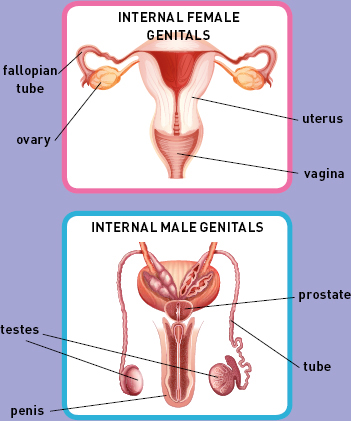
3. Sex organs Females have ovaries, which release an egg once a month if she is of reproductive age (roughly from age 12 to 49). Testes, the male sex organs, produce sperm. Sex organs are also called gonads.
4. Hormones Hormones are chemical messengers that tell our body to do all sorts of things like be hungry or be tired. Our bodies are all full of the same hormones, but levels will vary between males and females. Females produce more of the hormones estrogen and progesterone, while males tend to have more of the hormone testosterone.
5. Chromosomes sex chromosomes (in your genes) are clever little things that tell the rest of your body to develop typically male or typically female characteristics. Female mammals have two X chromosomes, while males have one X and one Y. Of course, doctors cant see that unless they are looking under a powerful microscope.
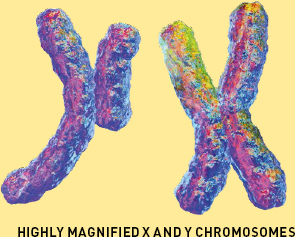
Why is sex important?
Sex is important for one BIG reason: reproduction. Humans create babies through a process called sexual reproduction. In humans, a male provides a seed to fertilize a female egg that then develops in a female uterus for nine months.
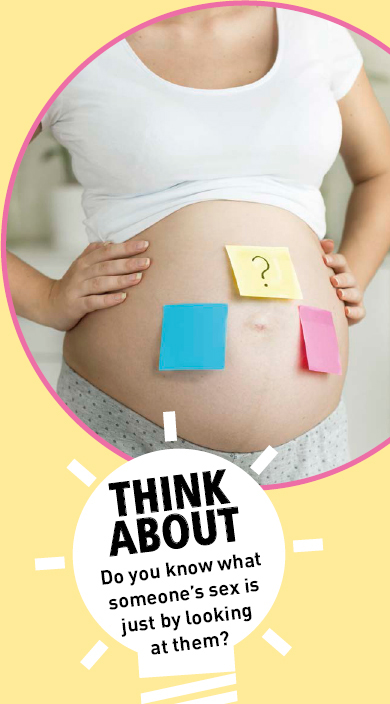
What Is Intersex?
A person is said to be intersex if they are born with characteristics of both sexes or are sexually ambiguous somehow (that means the doctor or midwife cant immediately tell by looking between a babys legs). Does this make the baby a boy or a girl? It can be a difficult issue.
Defining intersex
Because there are so many different ways for a baby to be classed as intersex, its very hard to say for certain how many intersex people there are in the world, but its probably somewhere around 1% of all births. Thats as many people as have red hair!
Sometimes, if a baby is born with elements of both male and female genitals, parents choose for the baby to have surgery. This is very controversial, however, as a baby has no say in whether they feel more like a girl or a boy.
When they are old enough, many intersex people choose whether they most identify as a man, woman, or describe themselves as transgender or intersex.
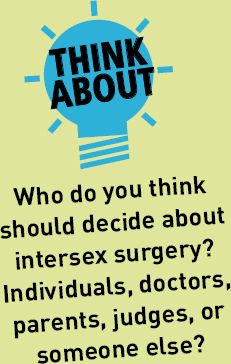
Next page
